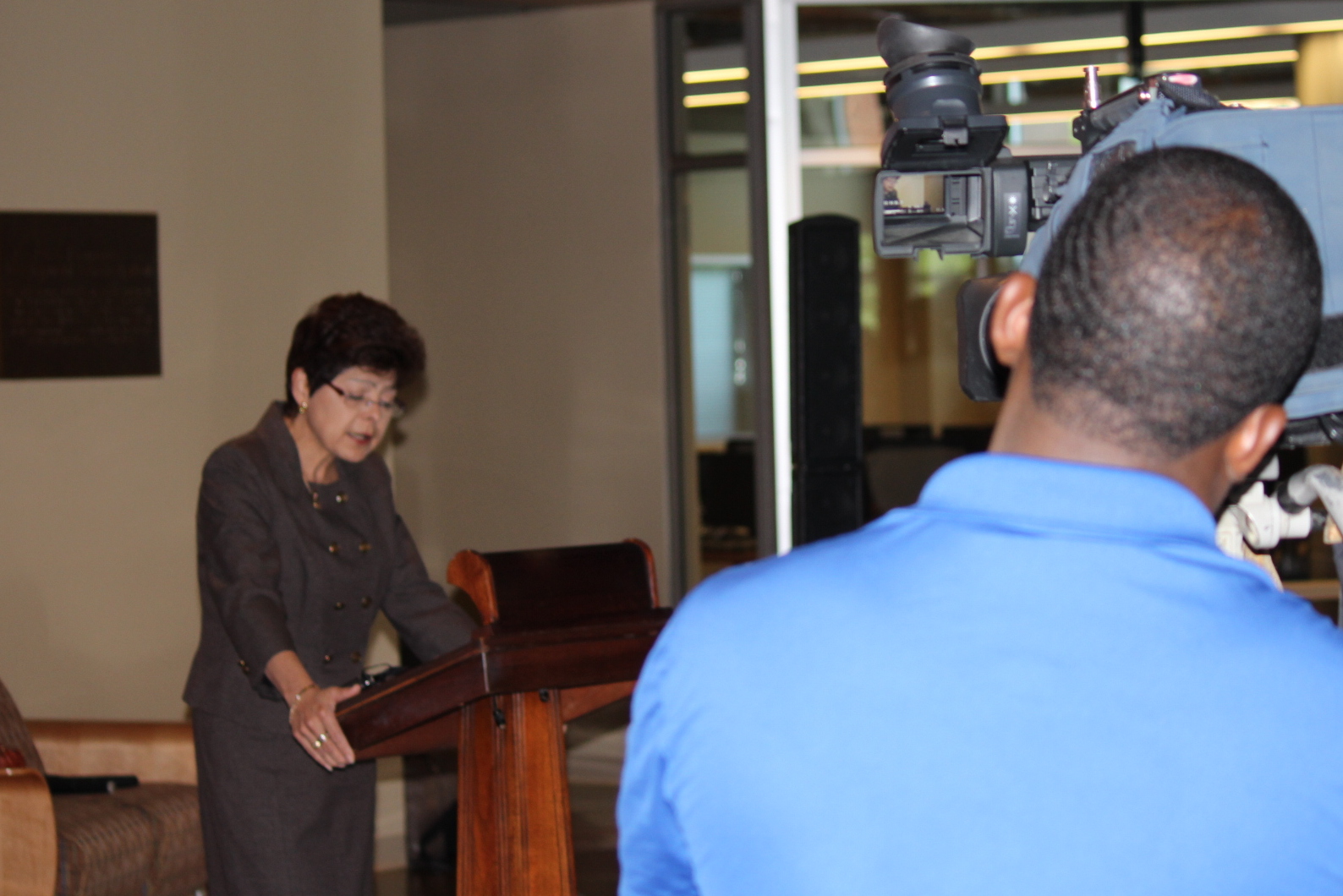Provost joins mayor to urge immigration reforms
The University of Arkansas at Little Rock joined forces with Little Rock Mayor Mark Stodola on Thursday, June 13, to urge passage of the Senate’s bipartisan immigration reform bill.
Both Stodola and UALR’s Dr. Zulma Toro, provost and vice chancellor for academic affairs, said at Thursday’s press conference that citizens could no longer ignore the business impact of immigrants.
Thursday’s press conference also highlighted new polling data showing Americans’ significant support for immigration reform. Toros said passage of immigration reform measures makes economic sense and is aligned with the goals of President Barack Obama and Gov. Mike Beebe to significantly increase the proportion of Hispanics and Latinos with high-quality degrees and credentials by 2025.
Toro, whose background is in engineering, said the U.S. was falling behind in number of engineering degrees being granted compared to other countries such as China and India.
“This poses a real threat to our competitive advantage in today’s global economy,” she said.
And although U.S. universities are considered “the best in the world” – partly due to the talent and diverse perspectives of faculty and staff – a new pool of equally talented and diverse persons will be needed to replace faculty and staff retirees in order for the U.S. to maintain its position in the world, said Toro.
Provost Toro, who came to the U.S. from Puerto Rico after earning a bachelor’s degree, said the issue was “very dear” to her on many levels.
Before coming to UALR, she was dean of the College of Engineering at Wichita State University and became the first woman and first Hispanic administrator to head the college. She earned a master’s degree from the University of Michigan and a doctorate from the Georgia Institute of Technology.
Mayor Stodola, co-chair of the U.S. Conference of Mayors’ Comprehensive Immigration Reform, used data from the Winthrop Rockefeller Foundation to support reform as sound fiscal policy for the city, as well as the state and nation.
He said the 2010 Foundation report showed the total economic impact of the remaining immigrant consumer spending on the Arkansas economy was $3.9 billion.
The economic impact was heavily concentrated in Little Rock (Pulaski County) and Northwest Arkansas (Benton,Washington, and Sebastian counties), but six other counties (Saline, Faulkner, Garland, Craighead, Lonoke, and Pope) also had immigrant populations with at least $65 million in consumer buying power, according to the report.
The economic contribution of immigrants is expected to grow as immigrants and their children increase their share of the state’s total population and workforce.
Subtracting the cost of essential services ($555 million) from immigrants’ combined consumer expenditures and tax contributions ($3.9 billion) yielded a net economic benefit to the state of $3.4 billion in 2010, according to the Rockefeller Foundation.
“It makes no sense to stand still,” Stodola said. “There’s not ever going to be a perfect system. This needs to be an opportunity to come together.”
